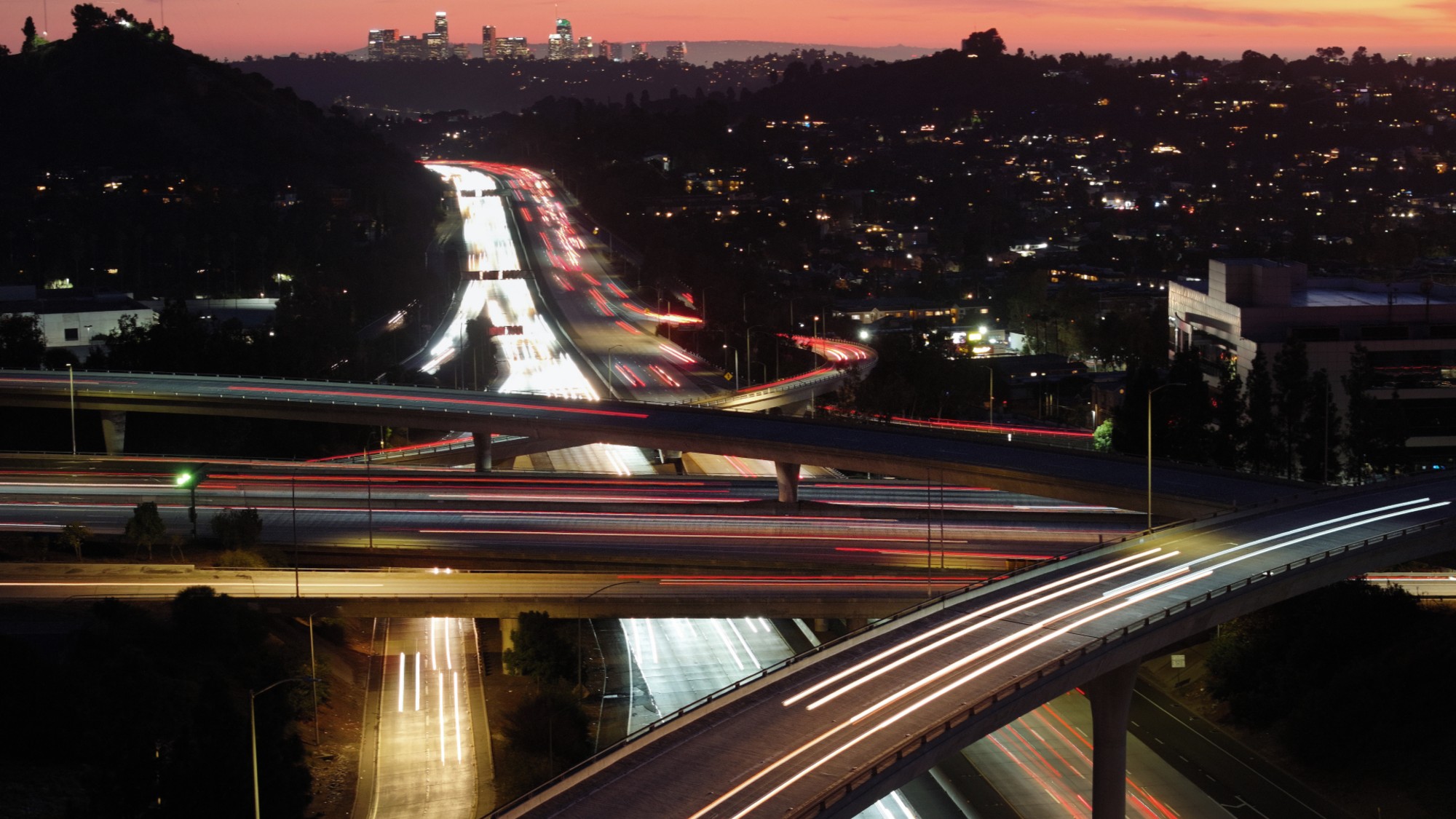Will California's EV mandate survive Trump, SCOTUS challenge?
The Golden State's climate goal faces big obstacles


A free daily email with the biggest news stories of the day – and the best features from TheWeek.com
You are now subscribed
Your newsletter sign-up was successful
California Gov. Gavin Newsom (D) has an ambitious climate goal: Every single vehicle sold in his state in 2035 will be powered by electricity. But the state's EV mandate faces opposition both from President-elect Donald Trump and in the U.S. Supreme Court.
Congress allows the federal Environmental Protection Agency to let California set its own, stricter clean-air standards. That gives the state the authority it needs to ban the sales of gasoline-powered cars and impose its EV mandate. But that authority is now being challenged. The Supreme Court last week agreed to hear a case from oil companies arguing the "federal government exceeded its authority" by allowing California's special rules, said CalMatters. "Congress did not give California special authority to regulate greenhouse gases, mandate electric vehicles or ban new gas car sales," said Chet Thompson, president of the American Fuel & Petrochemical Manufacturers. That's not the only challenge: Trump's EPA is "expected to deny or try to revoke" California's standards, CalMatters said.
"California's electric vehicle ambitions are facing a reality check," said the Los Angeles Times. Even with a state-powered push, "sales growth has stalled" for EVs. The momentum could slow even further if, as also expected, Trump pulls the federal government's tax credit for electric-powered cars. "The headwinds are fueling fresh doubts" that California can meet its goal of all-EV sales a decade from now, said the Times.
The Week
Escape your echo chamber. Get the facts behind the news, plus analysis from multiple perspectives.

Sign up for The Week's Free Newsletters
From our morning news briefing to a weekly Good News Newsletter, get the best of The Week delivered directly to your inbox.
From our morning news briefing to a weekly Good News Newsletter, get the best of The Week delivered directly to your inbox.
What did the commentators say?
California's EV mandate is "on trial," The Wall Street Journal said in an editorial. Congress originally agreed to give California a carve-out on clean-air standards "because its geography and climate can exacerbate smog" in California-specific ways. That logic doesn't apply to the greenhouse gases the Golden State is trying to curb with its EV mandate: The effects of climate change "are global." That means California has "no more compelling reason" to impose standards on what kind of cars can be sold than any other state, the Journal said. "Courts may have to decide the issue."
With Trump returning to the White House, "California can cement its reputation for consistently committing to its climate policies," said the Los Angeles Times in an editorial. Indeed, the state has little choice: "Trump can do real damage by going after the states trying to deal with climate change." But the new administration's anti-climate agenda is "at odds with economic realities" — American EV sales are eight times larger than they were at the beginning of Trump's first term. California officials need to know that "environmentally responsible policy is still possible if they fight for it."
What next?
Some automakers are pushing back against California's goals, which require a third of all 2026 vehicle sales to be "zero-emission vehicles," said CNBC. That goal "looks impossible," Jack Hollis, chief operating officer of Toyota Motor North America, said in November. "Demand isn't there."
The EV push continues for now, said The Washington Post. The California Energy Commission this month approved a $1.4 billion plan to install 17,000 new EV charging stations across the state over the next four years. Electric vehicles, said Commissioner Patty Monahan, "are here to stay in the Golden State."
A free daily email with the biggest news stories of the day – and the best features from TheWeek.com
Joel Mathis is a writer with 30 years of newspaper and online journalism experience. His work also regularly appears in National Geographic and The Kansas City Star. His awards include best online commentary at the Online News Association and (twice) at the City and Regional Magazine Association.
-
 The environmental cost of GLP-1s
The environmental cost of GLP-1sThe explainer Producing the drugs is a dirty process
-
 Greenland’s capital becomes ground zero for the country’s diplomatic straits
Greenland’s capital becomes ground zero for the country’s diplomatic straitsIN THE SPOTLIGHT A flurry of new consular activity in Nuuk shows how important Greenland has become to Europeans’ anxiety about American imperialism
-
 ‘This is something that happens all too often’
‘This is something that happens all too often’Instant Opinion Opinion, comment and editorials of the day
-
 House votes to end Trump’s Canada tariffs
House votes to end Trump’s Canada tariffsSpeed Read Six Republicans joined with Democrats to repeal the president’s tariffs
-
 Bondi, Democrats clash over Epstein in hearing
Bondi, Democrats clash over Epstein in hearingSpeed Read Attorney General Pam Bondi ignored survivors of convicted sex offender Jeffrey Epstein and demanded that Democrats apologize to Trump
-
 How did ‘wine moms’ become the face of anti-ICE protests?
How did ‘wine moms’ become the face of anti-ICE protests?Today’s Big Question Women lead the resistance to Trump’s deportations
-
 US to send 200 troops to Nigeria to train army
US to send 200 troops to Nigeria to train armySpeed Read Trump has accused the West African government of failing to protect Christians from terrorist attacks
-
 Grand jury rejects charging 6 Democrats for ‘orders’ video
Grand jury rejects charging 6 Democrats for ‘orders’ videoSpeed Read The jury refused to indict Democratic lawmakers for a video in which they urged military members to resist illegal orders
-
 How are Democrats trying to reform ICE?
How are Democrats trying to reform ICE?Today’s Big Question Democratic leadership has put forth several demands for the agency
-
 Judge rejects California’s ICE mask ban, OKs ID law
Judge rejects California’s ICE mask ban, OKs ID lawSpeed Read Federal law enforcement agents can wear masks but must display clear identification
-
 Big-time money squabbles: the conflict over California’s proposed billionaire tax
Big-time money squabbles: the conflict over California’s proposed billionaire taxTalking Points Californians worth more than $1.1 billion would pay a one-time 5% tax
